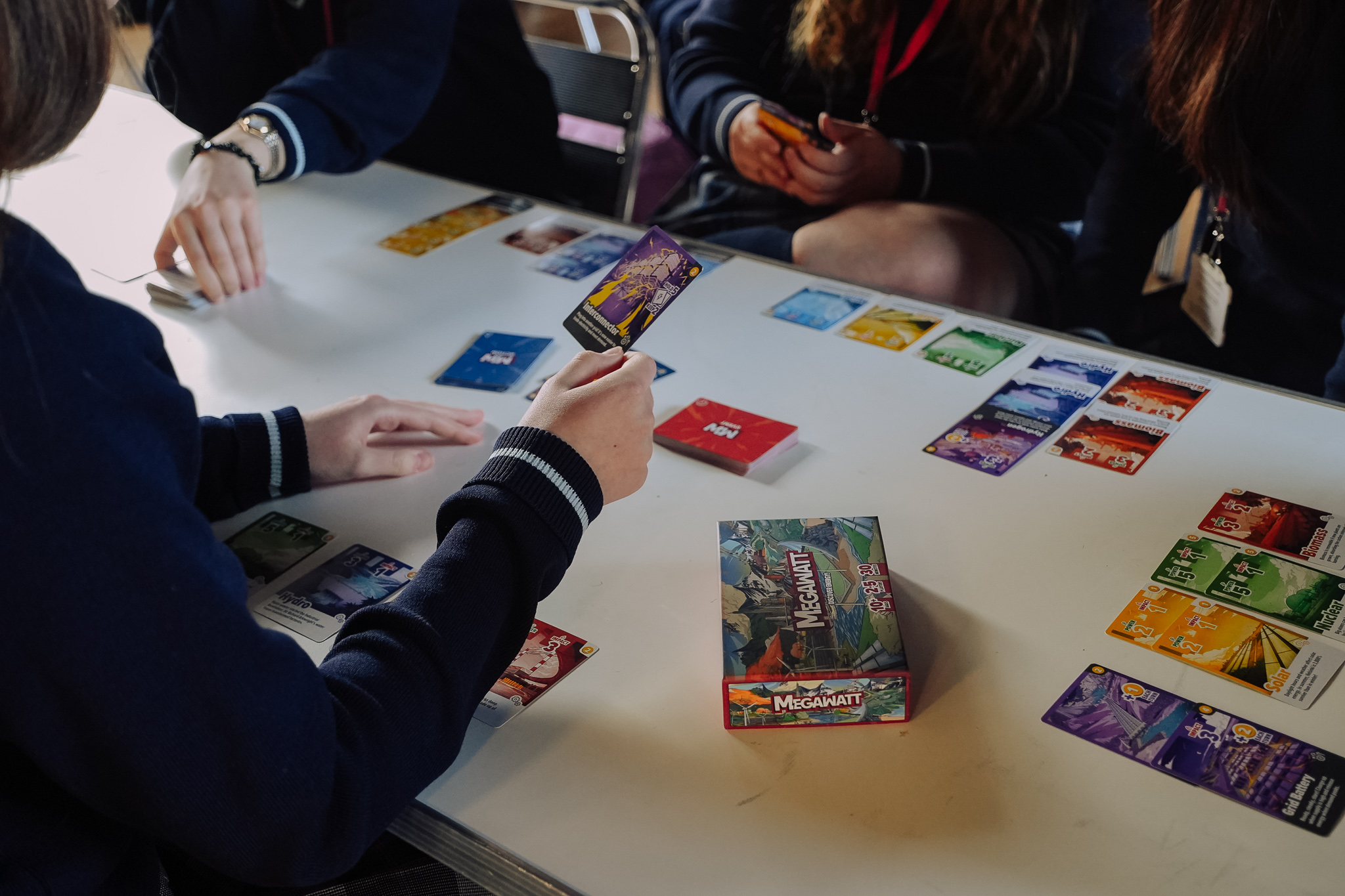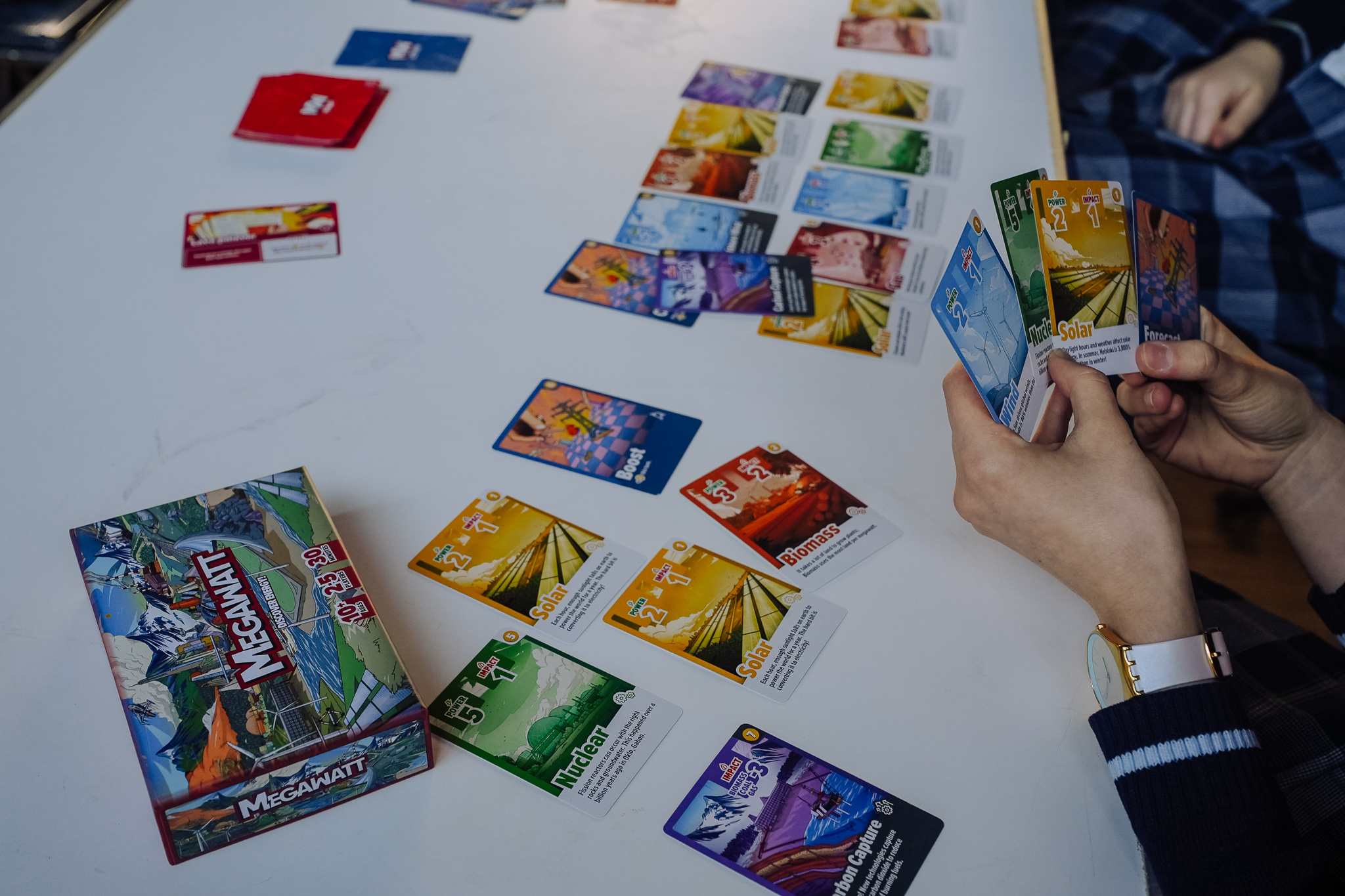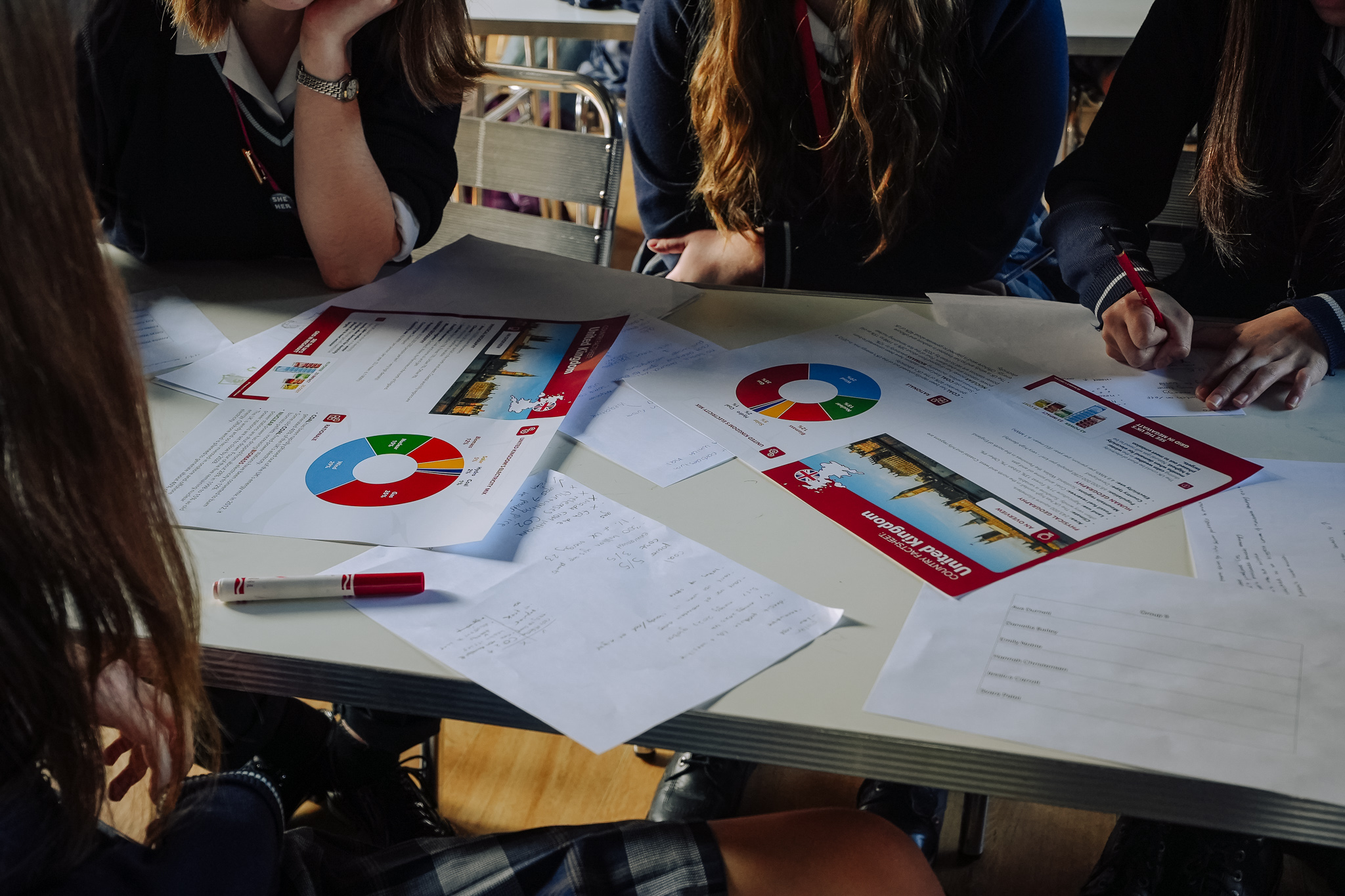Primary School Teacher Testimonial
Who are you?
My name is Maren Kelly, and I am the Head of Science, Maths, and Outreach at St Catherine’s Prep School in Bramley, Surrey.
I am a primary school teacher with over 30 years of experience in education, having taught in various schools in both Germany and the UK.
Throughout my career, I have been passionate about making science and maths engaging and accessible for young learners, helping them develop curiosity and confidence in these subjects.

Why Megawatt?
I was initially drawn to Megawatt because my Year 6 pupils were eager to learn more about the different energy sources used in the UK. They were particularly interested in understanding the background of various energy sources-where they come from, how they are used, and what can be done to promote more eco-friendly options to reduce their carbon footprint. Before using Megawatt, I found it challenging to source engaging and accessible materials that made this complex topic both fun and meaningful for primary-aged learners.
What made Megawatt stand out from other resources was its interactive and hands-on approach. Unlike traditional learning materials, Megawatt is a card game that encourages pupils to actively participate in discussions, challenge each other, and develop strategic thinking skills while exploring energy-related concepts. The game format adds an element of excitement and motivation, making the learning experience more dynamic and less rigid. It allows pupils to discover information organically, fostering curiosity and deeper understanding in a way that traditional resources often do not.

How have you used Megawatt?
Since discovering Megawatt, I have incorporated it into my teaching every year when exploring carbon footprints with my pupils and discussing ways they can reduce their own impact. The game serves as an engaging starting point for learning about different energy sources, allowing us to explore the advantages and disadvantages of renewable and non-renewable energy.
So far, I have used Megawatt to help pupils understand how energy sources vary across different countries, with a specific focus on the UK-where renewable energy is currently used and how its adoption could be expanded. The game, along with the accompanying fact sheets and case studies, provides valuable up-to-date information in an accessible format that pupils can easily follow and understand.
The students have responded enthusiastically to the materials, particularly enjoying the interactive nature of the game, which keeps them motivated and engaged. The structure of Megawatt also allows for flexibility, making it easy to adapt the resources to fit my teaching style and the specific needs of my class. For example, after using Megawatt to build foundational knowledge, I encourage pupils to choose one form of renewable energy to research further. They then use the resources to develop presentations, which deepens their learning and helps them take ownership of their knowledge.
Since introducing Megawatt, I have noticed a significant improvement in my pupils’ understanding of energy sources. They now have a much clearer grasp of where their energy comes from and why increasing the use of renewable sources is crucial. Their critical thinking skills have also improved, as they are able to discuss and evaluate different energy options more confidently. Overall, the game has made learning about energy both enjoyable and meaningful.

Favourite part of Megawatt?
One of my pupils’ favourite aspects of Megawatt is the competitive nature of the card game. Initially, they are focused on winning, but as they play, they quickly start engaging with the deeper learning elements-balancing the cost of building a powerful energy grid with environmental impact and power output. Each card contains interesting facts, sparking discussions about different energy sources and their consequences.
A surprising benefit of using Megawatt has been witnessing how naturally these discussions develop. As a teacher, it has been incredibly rewarding to take a step back and simply listen to the students strategising, debating, and justifying their choices. The game encourages critical thinking and teamwork in a way that feels organic and student-led.
One of my favourite features of Megawatt is how it allows students to explore energy-related concepts in a hands-on and engaging way, rather than just through traditional lessons. The strategic decision-making process keeps them motivated while reinforcing key learning points.
A particularly memorable success moment was when a group of students, after playing the game, initiated a discussion about how their own school could implement more renewable energy solutions. Their enthusiasm for real-world application showed how much deeper their understanding had become and highlighted the lasting impact Megawatt has had on their thinking.
Any final thoughts?
Each year the pupils ask me where to buy the game as they would like to continue to play this at home with their families and friends. We can’t wait for it to be made available to buy so that the learning can continue at home!
